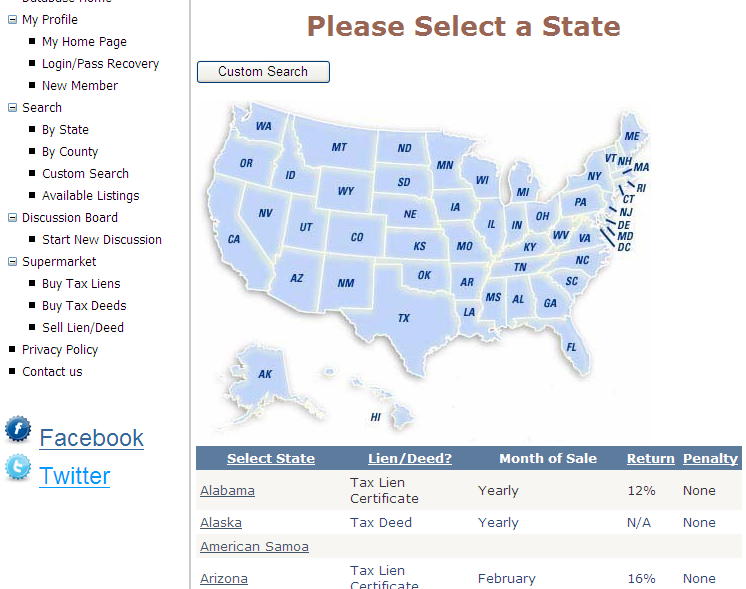All Categories
Featured
Table of Contents
Tax obligation lien investing can give your profile direct exposure to realty all without having to in fact have residential or commercial property. Professionals, nevertheless, say the procedure is complicated and alert that newbie capitalists can conveniently get melted. Below's whatever you need to learn about spending in a tax obligation lien certificate, including just how it works and the risks entailed.
The notice normally comes prior to harsher actions, such as a tax levy, where the Internal Revenue Service (INTERNAL REVENUE SERVICE) or regional or local federal governments can really confiscate someone's home to recover the debt. A tax lien certification is created when a residential or commercial property proprietor has actually failed to pay their taxes and the regional government issues a tax obligation lien.
Tax obligation lien certifications are commonly auctioned off to capitalists wanting to profit. To recover the delinquent tax obligation dollars, districts can then sell the tax obligation lien certificate to personal investors, who care for the tax expense in exchange for the right to gather that money, plus interest, from the residential or commercial property proprietors when they at some point pay back their equilibrium.
Tax Lien Deed Investing
enable the transfer or assignment of overdue property tax liens to the exclusive market, according to the National Tax Obligation Lien Association, a not-for-profit that represents federal governments, institutional tax lien investors and servicers. Below's what the process appears like. Tax obligation lien capitalists need to bid for the certificate in a public auction, and just how that procedure works depends on the certain district.
Get in touch with tax obligation authorities in your location to inquire exactly how those overdue tax obligations are gathered. Public auctions can be on the internet or face to face. Often winning proposals most likely to the capitalist ready to pay the lowest rate of interest, in an approach recognized as "bidding down the interest price." The district develops a maximum rate, and the prospective buyer providing the lowest rates of interest under that optimum wins the auction.
Various other winning quotes go to those that pay the highest possible cash money amount, or premium, above the lien amount. What takes place next for financiers isn't something that takes place on a stock exchange. The winning prospective buyer needs to pay the entire tax obligation costs, including the overdue financial obligation, passion and charges. Then, the capitalist has to wait up until the homeowner pay back their whole balance unless they do not.
While some capitalists can be awarded, others could be captured in the crossfire of complex guidelines and loopholes, which in the worst of scenarios can result in large losses. From a simple revenue point ofview, the majority of investors make their cash based on the tax obligation lien's rate of interest. Passion rates vary and depend upon the jurisdiction or the state.
Revenues, nonetheless, do not always amount to yields that high throughout the bidding process. In the long run, most tax obligation liens acquired at auction are marketed at rates between 3 percent and 7 percent country wide, according to Brad Westover, executive supervisor of the National Tax Obligation Lien Organization. Prior to retiring, Richard Rampell, formerly the president of Rampell & Rampell, an accounting company in Palm Beach, Florida, experienced this firsthand.
Best Tax Lien Investing Course
After that huge institutional capitalists, including financial institutions, hedge funds and pension plan funds, chased those higher yields in public auctions around the country. The bigger investors aided bid down passion prices, so Rampell's group wasn't making considerable money any longer on liens.
That seldom takes place: The taxes are normally paid before the redemption date. Liens likewise are initial eligible settlement, even prior to home mortgages. Even so, tax obligation liens have an expiration day, and a lienholder's right to foreclose on the residential or commercial property or to accumulate their investment runs out at the same time as the lien.
Private investors who are considering financial investments in tax liens should, above all, do their homework. Professionals suggest avoiding buildings with ecological damage, such as one where a gas terminal unloaded hazardous product.
Profit By Investing In Real Estate Tax Liens
"You should really understand what you're purchasing," claims Richard Zimmerman, a partner at Berdon LLP, an accounting firm in New York City. "Understand what the residential or commercial property is, the neighborhood and worths, so you do not buy a lien that you won't be able to accumulate." Prospective capitalists should also have a look at the residential or commercial property and all liens against it, in addition to current tax sales and list price of comparable properties.
Yet, maintain in mind that the info you locate can often be outdated. "Individuals obtain a listing of buildings and do their due persistance weeks prior to a sale," Musa states. "Half the homes on the listing may be gone because the tax obligations make money. You're wasting your time. The closer to the date you do your due persistance, the much better.
Property Tax Lien Investing

Westover states 80 percent of tax lien certificates are offered to members of the NTLA, and the firm can typically pair up NTLA participants with the right institutional capitalists. That may make taking care of the process less complicated, specifically for a novice. While tax lien financial investments can use a generous return, be conscious of the small print, information and policies.
"Yet it's complicated. You need to understand the details." Bankrate's added to an upgrade of this story.
Residential property tax obligation liens are a financial investment particular niche that is ignored by the majority of investors. Buying tax liens can be a profitable though fairly risky service for those who are educated about actual estate. When people or companies fall short to pay their real estate tax, the municipalities or various other federal government bodies that are owed those tax obligations place liens versus the buildings.
Investing In Tax Liens Online
These cases on collateral are additionally traded amongst financiers that intend to generate above-average returns. With this procedure, the municipality obtains its tax obligations and the investor gets the right to collect the amount due plus interest from the debtor. The procedure hardly ever ends with the capitalist confiscating possession of the property.
If you need to seize, there may be other liens against the property that keep you from taking ownership. You can additionally invest indirectly through building lien funds.
It properly binds the property and prevents its sale until the owner pays the tax obligations owed or the home is taken by the financial institution. When a landowner or homeowner stops working to pay the tax obligations on their residential or commercial property, the city or county in which the building is situated has the authority to put a lien on the property.
Building with a lien connected to it can not be marketed or refinanced till the tax obligations are paid and the lien is gotten rid of. When a lien is provided, a tax obligation lien certification is created by the municipality that reflects the quantity owed on the property plus any kind of passion or penalties due.

It's estimated that an added $328 billion of building taxes was assessed throughout the United state in 2021. It's tough to assess across the country property tax obligation lien numbers.
Table of Contents
Latest Posts
Tax Sales Overages
States With Tax Deed Sales
Notice Of Tax Sale
More
Latest Posts
Tax Sales Overages
States With Tax Deed Sales
Notice Of Tax Sale